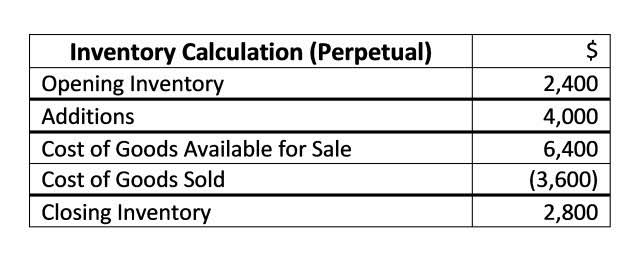Content

If in your sales there is FOB destination inventory which was shipped just before the cutoff , or any inventory that is yet to be shipped, the business will not record the sale until the next fiscal year begins. In the case of FOB Shipping Point, the sale becomes complete when the shipment is sent off. As for FOB destination, the sale becomes complete when the goods are delivered and come into the buyer’s possession. In addition to their value in clarifying legal liability, shipping terms also determine the point at which one is able to record revenue for the transaction on the inventory asset account on their balance sheet. The seller is responsible for all expenses until the goods are loaded onto the vessel at the port of shipment.
Zach Lazzari is a freelance writer with extensive experience in startups and digital advertising. He has a diverse background with a strong presence in the digital marketing world. Zach has developed and sold multiple successful web properties and manages marketing for multiple clients in the outdoor industry.
Management Accounting
Destination agreement, the seller retains ownership of the goods up until the point where the goods have reached their final destination. The term free on board simply refers to freight that is being shipped over water instead of land or air. About 90 percent of all global freight is shipped via ocean and sea freight. Import fees when they reach the border of one country to enter the other country under the conditions of FOB destination are due at the customs port of the destination country.
If a shipment is sent FOB Shipping Point (the seller’s warehouse), then the sale is concluded as soon as the truck pulls out of the seller’s loading dock and is noted in the accounting system as such. With a CIF agreement, the seller pays costs and assumes liability until the goods reach the port of destination chosen by the buyer. Historically, FOB was used only to refer to goods transported by ship—in the U.S., the term has since been expanded to include all types of transportation. The determination of who will be charged the freight costs is usually indicated in the terms of sale. If the Freight On Board is indicated as “FOB delivered,” the seller or shipper will be wholly responsible for all the costs involved in transporting the consignment. Where the FOB terms of sale are indicated as “FOB Origin,” the buyer is responsible for the costs involved in transporting the goods from the seller’s warehouse to the final destination. On the other hand, another International commercial term used in the shipping process is the FOB shipping destination.
Insurance Claims Under Fob Shipping Point Terms
Free Financial Modeling Guide A Complete Guide to Financial Modeling This resource is designed to be the best free guide to financial modeling! When you access this website or use any of our mobile applications we may automatically collect information such as standard details and identifiers for statistics or marketing purposes. You can consent to processing for these purposes configuring your preferences below.
This means there is a difference between the legal terms of the arrangement and the typical accounting for it. The transportation department of a buyer might insist on FOB shipping point terms, so that it can take complete control over the delivery of goods once they leave a supplier’s shipping dock. Shipping terms affect the buyer’s inventory cost because inventory costs include all costs to prepare the inventory for sale.
Now that almost everything is being shipped due to the pandemic restrictions, we want to know the answers to the following questions. Who takes ownership and has full responsibility once the packages are shipped? Who can file a claim to the insurance carrier when the products are lost or damaged while in transit? These are major concerns that involve both the seller and the buyer. Whether you are a consumer who loves to order stuff online or a business owner who sells and ships your products, you need to pay attention to these details. The answer to who is responsible when an item or product is damaged or lost upon shipping depends on what type of agreement or contract both parties have signed.
The timing difference from shipping terms is typically just a few days and unlikely to affect periodic financial statements. However, a CPA preparing GAAP financial statements will put in more scrutiny. According to the generally accepted accounting principles , a business cannot record revenue until the transfer of risks and rewards of the goods from the seller to the buyer. If you are a seller using FOB destination and you are shipping using a third-party carrier such as US Postal Service or UPS, consider getting insurance on any expensive goods that you ship. The buyer is responsible for any pre-shipment inspection, except when it is ordered by the country of export’s administration.
Fob Costs And Payments
Another term that is commonly confused to have the same meaning as FOB is CIF, also known as “cost insurance and freight”. CIF is used by sellers to maintain primary ownership of their products until they are delivered to their destination. The seller also assumes all responsibility for the shipment of these goods, so they’ll cover the cost of insurance until the goods are in the buyer’s hands. Once the shipment passes the buyer’s port of destination, all liability will then shift from the seller to the buyer. Let us assume, Company A that is located in the Philippines buys Personal Protective Equipment from a supplier based in Taiwan, and the company signs an FOB shipping point agreement.
When the inventory is received and accepted at the destination, the delivery confirmation serves as proof of the goods leaving the seller inventory. The delivery confirmation serves a similar purpose for the buyer’s accounting department. After the goods are accepted, they are logged in to inventory and accounted for as assets in the business. EXW. Ex Works, which only requires the retailer to get products ready to be shipped from its location. The buyer is responsible for making any settlements for the shipment and for picking the goods up. Learn the definition of shipping and handling cost and its formula.

Since FOB shipping point transfers the title of the shipment of goods when the goods are placed at the shipping point, the legal title of those goods is transferred to the buyer. Therefore, the seller is not responsible for the goods during delivery. FOB shipping point is a further limitation or condition to FOB, as responsibility changes hands at the seller’s shipping dock.
What Is Fob Shippingpoint?
If the terms include “FOB destination, freight prepaid,” the seller is responsible for goods until delivered, provided there are no insurance claims. In this scenario, the seller is responsible for the freight charges. On the other hand, “FOB origin” or “FOB shipping point” indicates the opposite—that the buyer is responsible for goods soon as the vendor ships the goods. FOB is one of those seemingly complex transportation terms that are known as shipping terms of sale. FOB is an abbreviation for ‘free on board’, and it indicates that the price of delivery is included with the price of the goods, or that the seller is prepared to ship it for free to a certain point. It pertains specifically to the International Chamber of Commerce’s Incoterms 2010, and is used specifically when it comes to sea freight. In this case, the seller legally owns the products and is responsible until it gets delivered to the buyer’s address.
- Just enter the dimensions and weight of your goods and specify the port of shipment, and you’ll get your FOB price calculation instantly.
- Conversely, with FOB destination, the seller pays the shipment cost and fees until the items reach their destination, such as the buyer’s location.
- When all these costs are added up, the shipping cost becomes far more expensive than what it would cost you to ship the same goods domestically.
- Don’t take chances with your international deals that could end up costing you tremendously.
- Contact ShipCalm today to learn more about how we can be your partner and resource in international shipping – we take the uncertainty out of the complexities of incoterms.
- The shipment is sent to Newark, New Jersey, and the watches are damaged in transit.
The qualifiers of FOB shipping point and destination are sometimes used to reduce or extend the responsibility of the supplier in an FOB shipping agreement. It is important to note that FOB does not define the ownership of the cargo, only who has the shipping cost responsibility. Destination contract, the buyer is only responsible for the costs of getting the freight to their desired location from the final port. The term FOB is also used in modern domestic shipping within North America to describe the point at which a seller is no longer responsible for shipping costs. Conversely, when you are selling to an overseas buyer, it is in your best interest for the buyer to become responsible as soon as it leaves your loading dock. FCA. Free Carrier, which means that the seller is obligated to deliver goods to an airport, shipping port, or railway terminal where the buyer has an operation and can take delivery there.
Free On Board Shipping Point Vs Free On Board Destination: What’s The Difference?
The process ensures the goods are accounted for while in transit; otherwise, they enter a gray area of ownership. It also serves the accounting department, which must record the sale and transfer of inventory. FOB stands for “freight on board.” The term is used to describe the point in a transaction where a product being shipped becomes the property of the buyer.

EXW. Ex Works, which only requires the seller to get products ready to be shipped from its location. The buyer is responsible for making any arrangements for shipment and for picking the goods up. The author states that there is often confusion because the parties involved in the contracts misunderstand incoterms FOB, sales contracts, carriage contracts, and letters of credit. Han urges companies to use caution and to clarify which type of FOB they are entering into so that the risks and liabilities are clear.
Therefore, international trade will almost definitely have an impact on the FOB process. The carrier also signs the bill of lading when delivering the goods to the buyer. This ensures that you can file a claim in the event of loss or damage of the cargo.
What Does Fob Mean In Freight?
With FOB shipping point, ownership of goods is transferred to the buyer once they leave the supplier’s shipping point. You purchase goods from a supplier in China and agree to FOB shipping terms. The next three steps of the process are carried out at the supplier’s expense. F.O.B. Shipping Pointmeans Customer takes delivery of Goods being shipped to it by Seller once the Goods are tendered to the carrier. Unlike FOB shipping point, FOB destination, indicates that the ownership of goods is not transferred to the buyer until they arrive at their destination.
https://www.bookstime.com/ terms indicate that the buyer assumes ownership of the goods as soon as they leave the supplier’s location. They also indicate that the buyer must pay to have the goods shipped. In this type of agreement, the buyer assumes full responsibility for the goods after the seller delivers them to the carrier. A related but separate term, “CAP,” (customer-arranged pickup) is used when the contract is for the buyer to arrange transport via a carrier of their choice, to retrieve the goods from the seller’s premises. This is also the moment that the supplier should record a sale since they’re taking ownership at the receiving dock.
Traditionally with FOB shipping point, the seller pays the transportation cost and fees until the cargo is delivered to the port of origin. Once on the ship, the buyer is responsible financially for transportation costs, customs clearance, fees, and taxes. Conversely, with FOB destination, the seller pays the shipment cost and fees until the items reach their destination, such as the buyer’s location.
He has published business content in Angling Trade Magazine and writes white papers and case studies for multiple corporate partners. Hearst Newspapers participates in various affiliate marketing programs, which means we may get paid commissions on editorially chosen products purchased through our links to retailer sites. CIF is a more expensive contract option than FOB, as is demands more effort and expense on the part of the supplier.
If you prefer to opt out, you can alternatively choose to refuse consent. Please note that some information might still be retained by your browser as it’s required for the site to function.
At this point, decisions must be made concerning what means of transportation to use (third-party truck, train, and so on) and which service-provider to hire for the purpose. As a seller, one way to deal with this is estimating the cost and choosing the freight prepaid route, in which case the cost gets included in the purchase. While domestic trade is straightforward, shipping to other countries is not as clear-cut, since the international trade laws you have to deal with will depend on which country you are shipping to or from.
Learn how to calculate shipping costs, including packaging and handling costs. This may not make sense right off the bat, but to understand the FOB designation meaning, let’s start with the difference between FOB origin vs FOB destination.
What Is The Difference Between Fob And Fas?
Company A buys watches from Vietnam and signs a FOB Newark agreement. The shipment is sent to Newark, New Jersey, and the watches are damaged in transit.
Incoterms 2020 considers delivery as the point when the risk of loss or damage to the goods is transferred from the seller to the buyer. The two terms have a specific meaning in commercial law and cannot be altered. The last distinction is important for determining liability or risk of loss for goods lost or damaged in transit from the seller to the buyer.